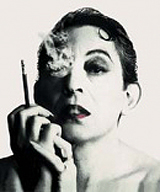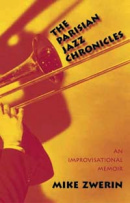 France has a comprehensive social security (sécurité sociale) system covering healthcare, injuries at work, family allowances, unemployment insurance, and old age (pensions), invalidity and death benefits. France spends more on ‘welfare’ than almost any other EU country: over 30 per cent of GDP. Continue reading “French Social Security System”
France has a comprehensive social security (sécurité sociale) system covering healthcare, injuries at work, family allowances, unemployment insurance, and old age (pensions), invalidity and death benefits. France spends more on ‘welfare’ than almost any other EU country: over 30 per cent of GDP. Continue reading “French Social Security System”
The French National Health System
 France has an excellent, although expensive, national health system. If you qualify for healthcare under the national health system, you and your family are entitled to subsidized or (in certain cases) free medical and dental treatment. Benefits include general and specialist care, hospitalization, laboratory services, medicines, dental care, maternity care, appliances and transportation. Those who don’t automatically qualify can contribute voluntarily or take out private health insurance. Continue reading “The French National Health System”
France has an excellent, although expensive, national health system. If you qualify for healthcare under the national health system, you and your family are entitled to subsidized or (in certain cases) free medical and dental treatment. Benefits include general and specialist care, hospitalization, laboratory services, medicines, dental care, maternity care, appliances and transportation. Those who don’t automatically qualify can contribute voluntarily or take out private health insurance. Continue reading “The French National Health System”
Working in France
 Regulations governing the right of foreigners to employment in France are complex. If you do not have permanent residency (une carte de résident) in France, which authorizes you to work here, obtaining a work permit depends on where you come from, whether you have legitimate grounds for living in France, and what sort of gainful activity you expect to pursue. At present, citizens of pre-2004 member nations of the European Union and Switzerland need no official authorization to live and work in France (see further “Working in France for EEA Nationals”). For non-EEA foreigners, application for any prolonged stay (i.e., not a 90-day tourist visa) must be made through a French consulate in their home country. Any authorization to work in France will be contingent on obtaining permission to live here.
Regulations governing the right of foreigners to employment in France are complex. If you do not have permanent residency (une carte de résident) in France, which authorizes you to work here, obtaining a work permit depends on where you come from, whether you have legitimate grounds for living in France, and what sort of gainful activity you expect to pursue. At present, citizens of pre-2004 member nations of the European Union and Switzerland need no official authorization to live and work in France (see further “Working in France for EEA Nationals”). For non-EEA foreigners, application for any prolonged stay (i.e., not a 90-day tourist visa) must be made through a French consulate in their home country. Any authorization to work in France will be contingent on obtaining permission to live here.
Continue reading “Working in France”
Health Emergencies in France
 France’s emergency medical services are among the best in the world but may operate in a slightly different way from those you’re used to. The action to take in a medical emergency depends on the degree of urgency. Continue reading “Health Emergencies in France”
France’s emergency medical services are among the best in the world but may operate in a slightly different way from those you’re used to. The action to take in a medical emergency depends on the degree of urgency. Continue reading “Health Emergencies in France”
French retirement homes
Excerpted from “Buying a Home in France ”
 Traditionally, the French expect to care for elderly relatives within the family unit (indeed adults are legally obliged to provide for their parents in old age, according to their means), so retirement homes (résidence pour retraités/seniors) are less common than in many other Western countries, although they’re becoming more usual: there are now around 5,000 retirement homes. Continue reading “French retirement homes”
Traditionally, the French expect to care for elderly relatives within the family unit (indeed adults are legally obliged to provide for their parents in old age, according to their means), so retirement homes (résidence pour retraités/seniors) are less common than in many other Western countries, although they’re becoming more usual: there are now around 5,000 retirement homes. Continue reading “French retirement homes”
Buying a Business Property
 Excerpted from “Buying a Home in France”
Excerpted from “Buying a Home in France”
The procedure for buying business premises is essentially the same as for buying private property in France. This is generally a straightforward process, although there are certain precautions to be taken and regulations to be observed. You can obtain a mortgage of up to 80 per cent on a commercial property, but you must fund the business yourself.Before buying any business property, you must do your homework thoroughly, particularly regarding the history and viability of the business. Continue reading “Buying a Business Property”
Buying a Home in France
 Excerpted from “Buying a Home in France “
Excerpted from “Buying a Home in France “
A ‘new’ house is generally defined as one built in the last five years, which is also the legal definition. Although new properties may lack the charm and character of older buildings, they offer attractive financial and other advantages: Continue reading “Buying a Home in France”
Montmartre, Forever toujours…
 Paris legendary village on the hilltop is revisited through a juxtapositon of contemporary photographs and postcards produced a century ago, at a time when it was home to such Bohemian artists as Toulouse-Lautrec, Renoir and Degas. Historian Pierre Passot, a life-long resident of the Butte, makes Montmartre’s streets come alive with tales from its poetic past. by Pierre Passot with photos by Jean Villain (Edition Artena) BR
Paris legendary village on the hilltop is revisited through a juxtapositon of contemporary photographs and postcards produced a century ago, at a time when it was home to such Bohemian artists as Toulouse-Lautrec, Renoir and Degas. Historian Pierre Passot, a life-long resident of the Butte, makes Montmartre’s streets come alive with tales from its poetic past. by Pierre Passot with photos by Jean Villain (Edition Artena) BR
Confessions of a French baker
 First praised in Peter Mayle’s best-selling book A Year in Provence, Chez Auzet bakery became a must-see destination for food tourists visiting the village of Cavaillon in the south of France. In Confessions of a French baker, his tenth book, Peter Mayle joins forces with Gerard Auzet, Chez Auzet’s award winning boulanger and allows readers an inside look into the world of bread making. Part-memoir part recipe book, Mayle weaves the Auzet family’s history and savoir-faire with recipes for classics such as the baguette, boule or bâtard as well as flavored breads (olive, thyme, saffron and even bouillabaisse). Confessions of French baker is more a step-by-step guide filled with Auzet’s tips and industry secrets than the scandalous tell-all promised by the title but it is Mayle’s talent as a raconteur of Provence life that makes it such an enjoyable read. The last chapter on pairing breads with wine is a fun extra. by Peter Mayle and G. Auzet (TimeWarner) Reviewed by Alice Quillet
First praised in Peter Mayle’s best-selling book A Year in Provence, Chez Auzet bakery became a must-see destination for food tourists visiting the village of Cavaillon in the south of France. In Confessions of a French baker, his tenth book, Peter Mayle joins forces with Gerard Auzet, Chez Auzet’s award winning boulanger and allows readers an inside look into the world of bread making. Part-memoir part recipe book, Mayle weaves the Auzet family’s history and savoir-faire with recipes for classics such as the baguette, boule or bâtard as well as flavored breads (olive, thyme, saffron and even bouillabaisse). Confessions of French baker is more a step-by-step guide filled with Auzet’s tips and industry secrets than the scandalous tell-all promised by the title but it is Mayle’s talent as a raconteur of Provence life that makes it such an enjoyable read. The last chapter on pairing breads with wine is a fun extra. by Peter Mayle and G. Auzet (TimeWarner) Reviewed by Alice Quillet
William Klein Paris Retrospectve
 “Qui êtes-vous, Polly Maggoo ?”asks the title of William Klein’s most famous film. If you turn the question around on Klein and ask who he is, the answer is likely to be a long one. For not only is he among the most renowned fashion photographers of the century, but he’s also (as well as art directing his own books), the director of a score of documentaries and feature films, and over 250 television ads.Klein is featured here this winter with a major retrospective at the Pompidou Center. It provides a detailed look at more than 50 years of work, juxtaposing some of his earliest and most recent photographs, as well as various book dummies, extracts from films, paintings, drawings and posters – selected largely from the artist’s personal archives.
“Qui êtes-vous, Polly Maggoo ?”asks the title of William Klein’s most famous film. If you turn the question around on Klein and ask who he is, the answer is likely to be a long one. For not only is he among the most renowned fashion photographers of the century, but he’s also (as well as art directing his own books), the director of a score of documentaries and feature films, and over 250 television ads.Klein is featured here this winter with a major retrospective at the Pompidou Center. It provides a detailed look at more than 50 years of work, juxtaposing some of his earliest and most recent photographs, as well as various book dummies, extracts from films, paintings, drawings and posters – selected largely from the artist’s personal archives.
The Parisian Jazz Chronicles:
 In his Beat-like jaunt through the Parisian and European jazz scene, Mike Zwerin is not unlike Jack Kerouac, Mezz Mezzrow, or Hunter S. Thompson – writers to whom, for different reasons, he owes some allegiance. What makes him special is his devotion to the troubled musicians he idolizes, and a passion for music that is blessedly contagious. Many jazz fans will be familiar with Zwerin’s witty, irreverent and undeniably hip music reviews and articles published in the International Herald Tribune that have entertained us for decades. Based in Paris, or, rather, “stuck” there, as he likes to say, Mike Zwerin who’s been a music critic for the Trib since 1979, also had a distinguished career as a trombonist. When he was just 18 years old, he was invited by Miles Davis to play alongside Gerry Mulligan, John Lewis, and Max Roach in the band that was immortalized as “The Birth of the Cool.” “The Parisian Jazz Chronicles” constitute an engaging personal account of the jazz scene in Paris in the 1980s and 1990s. Zwerin writes lovingly but unsparingly about figures he knew and interviewed – such as Dexter Gordon, Freddy Heineken, Miles Davis, Bob Dylan, Chet Baker, Wayne Shorter, and Melvin Van Peebles. Against this background, he speaks of further allegiances (split between journalism and music, America and France…), while recounting his own life peopled by personal battles (a solitary struggle for sobriety, a failing marriage, and fatherhood…).
In his Beat-like jaunt through the Parisian and European jazz scene, Mike Zwerin is not unlike Jack Kerouac, Mezz Mezzrow, or Hunter S. Thompson – writers to whom, for different reasons, he owes some allegiance. What makes him special is his devotion to the troubled musicians he idolizes, and a passion for music that is blessedly contagious. Many jazz fans will be familiar with Zwerin’s witty, irreverent and undeniably hip music reviews and articles published in the International Herald Tribune that have entertained us for decades. Based in Paris, or, rather, “stuck” there, as he likes to say, Mike Zwerin who’s been a music critic for the Trib since 1979, also had a distinguished career as a trombonist. When he was just 18 years old, he was invited by Miles Davis to play alongside Gerry Mulligan, John Lewis, and Max Roach in the band that was immortalized as “The Birth of the Cool.” “The Parisian Jazz Chronicles” constitute an engaging personal account of the jazz scene in Paris in the 1980s and 1990s. Zwerin writes lovingly but unsparingly about figures he knew and interviewed – such as Dexter Gordon, Freddy Heineken, Miles Davis, Bob Dylan, Chet Baker, Wayne Shorter, and Melvin Van Peebles. Against this background, he speaks of further allegiances (split between journalism and music, America and France…), while recounting his own life peopled by personal battles (a solitary struggle for sobriety, a failing marriage, and fatherhood…).

